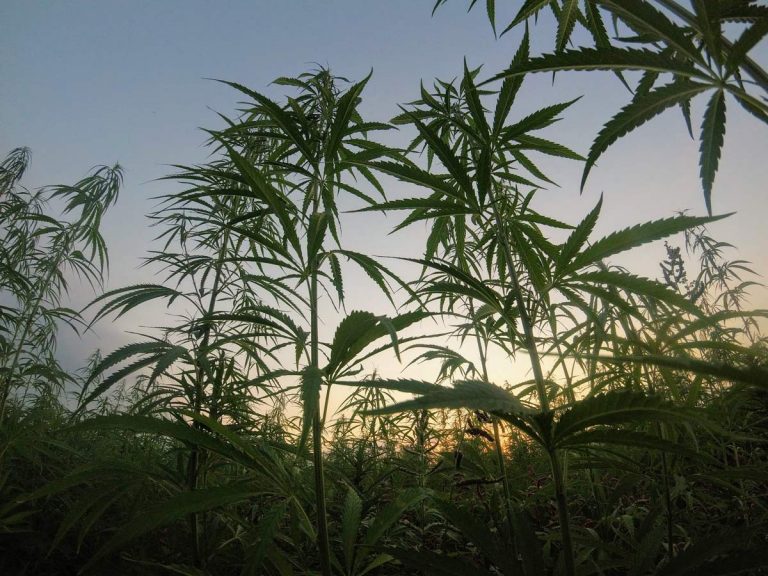Mexico set to legalise recreational marijuana and become the world’s largest market

On Wednesday 10 March 2021, lawmakers in Mexico approved a bill to legalise recreational marijuana, which could lead to the country becoming the world’s largest cannabis market, leaving the US stuck between two pot-selling neighbours.
The 316 to 129 vote took place in Mexico’s lower house, the Chamber of Deputies, and came more than two years after the Mexican Supreme Court ruled that the country’s ban on recreational marijuana was unconstitutional, as well as more than three years after the country legalised medicinal cannabis.
On Wednesday night, the chamber approved the bill in general terms before moving on to a lengthy discussion of possible revisions introduced by individual lawmakers. In its final form, though, the measure is widely expected to get approved by President Andrés Manuel López Obrador, who has previously signalled support for legalisation.
The news means that adults will be able to smoke marijuana and, with a permit, grow a small number of cannabis plants at home. It will also grant licenses for producers (from small farmers to commercial growers) to cultivate and sell the crop.
“With this, the false belief that cannabis is part of Mexico’s serious public health problems is left behind,” said Simey Olvera, a lawmaker with the governing Morena party. If everything goes to plan, Mexico would join Canada and Uruguay in a small but growing list of countries that have legalised marijuana in the Americas, potentially adding further momentum to the legalisation movement in the region.
In the US, Democrats in the Senate have also promised to scrap federal prohibition of the drug this year. Speaking about this potentiality, John Walsh, director of drug policy for the advocacy group Washington Office on Latin America (WOLA) said: “North America is heading toward legalisation,” adding that “Mexico, given its size and its worldwide reputation for being damaged by the drug war, to take this step is enormously significant.”
However in Mexico, the bill’s announcement has led to division—critics say it is unlikely to change much about the country’s infamous rates of cartel-fuelled violence, and argue that it is unwelcome when nearly two-thirds of people oppose legalising marijuana, according to recent polling.
“It’s a political fad,” said Damián Zepeda Vidales, a senator with the opposition National Action Party and one of the bill’s most vocal detractors. “It’s a matter for politicians, for an elite that’s now empowered in Congress and in government that wants to impose a way of life on society.”
Security experts further agree that the law’s impact on violence will likely be minimal. With more than 15 American states having legalised marijuana, it has become a small part of the Mexican drug trafficking business, with cartels focusing on products like fentanyl and methamphetamines.
On the other side, advocates of the legalisation of marijuana say that the bill is too limited, even if it represents a symbolic breakthrough in the push to end a drug war that has cost an estimated 150,000 lives, according to the Council on Foreign Relations and as reported by The New York Times.
Of course, legalisation is an important step toward building peace in a country like Mexico, but many fear that this bill falls short of achieving that. Furthermore, while the bill instructs that small farmers and indigenous people be given priority in licensing, it completely overlooks the fact that most of Mexico’s farmers have grown marijuana for decades and often end up in the middle of conflicts between cartels.
This means that, without additional state policies to tackle organised crime, particularly in areas where marijuana is grown, such requirements may not have a meaningful impact for farmers. That being said, many Mexican entrepreneurs are excited about the news. With more than 120 million people, the country would represent the largest marijuana market in the world by population.
Marijuana could therefore easily become big business in Mexico, a potential financial lift for an economy badly hit by the COVID-19 crisis. But here again, another issue could appear—activists fear that the law will favour large corporations, giving them access to the entire marijuana supply chain (from seed to sale), and leaving small-scale producers out of the lucrative market.
The bill will allow individual users to carry up to 28 grams of marijuana and grow six cannabis plants at home. Cannabis will also be available for purchase by adults aged over 18 at authorised businesses, and grown at larger scale by licensed groups. Medical marijuana, which Mexico legalised in 2017, will be regulated separately by the health ministry.





